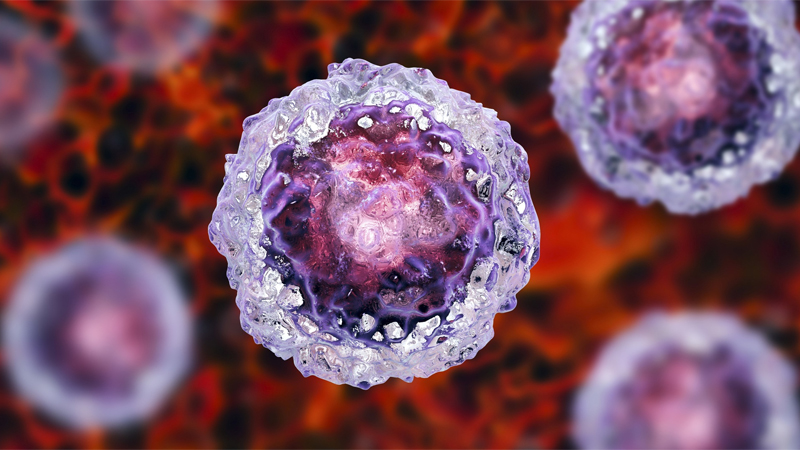Copper is a trace mineral that is essential for the body. Because it plays an important role in the normal development of the body. So what are the health benefits of copper? Let’s find out through the following article.
In the current situation, nourishing the body with vitamins and minerals is indispensable to achieve a comprehensive immune system as well as the health of the whole body, including copper. Copper is a mineral that helps fight oxidation, prevents cancer, is good for the heart, and is essential for the functioning of the nervous system.
1. What is copper?

You can provide copper to your body from your daily meals.
Copper is an essential trace mineral that is essential for the body’s survival. It is found in all body tissues and plays a role in the production of red blood cells and the maintenance of nerve cells and the immune system. It also helps the body form collagen and absorb iron, and plays a role in energy production.
Too much or too little copper can affect the way the brain works. A copper deficiency can lead to heart disease and other problems, but deficiencies are rare, except in certain conditions, such as Menkes disease. Because you can get copper from your diet, there is no need to supplement as it can easily lead to a mineral imbalance in the body
2. Health benefits of copper

From the cellular level to tissues and organs, copper has a significant impact on helping them function normally.
From the cellular to the tissue and organ level, copper has a significant impact on helping them function normally.
Energy supply
Copper is an indispensable component of enzymes in the body, typically cytochrome c oxidase, which plays an important role in cellular energy production. They catalyze the process of reducing oxygen to water, thereby providing an electrical gradient for mitochondria to create ATP, providing energy for the body.
Heart health
Low copper levels are associated with high cholesterol and high blood pressure. From the European Heart Journal, a group of researchers in an article on improving heart failure from copper supplements, suggested that some heart failure patients may benefit from copper supplementation.
Neurotransmission
In 2016, Professor Chris Chang, a chemist at the Sackler Sabbatical Exchange Program in Berkeley, CA, invented and used a fluorescent probe to track the presence and movement of copper atoms in and out of neurons. Chemist Chris Chang showed that changes in the concentration of this element at the synapse can turn signals between neurons on or off. More copper entering the neuron reduces the neuron’s ability to fire, but the brain can reverse this process by lowering copper levels to allow the neuron to continue signaling.
Seeing and understanding what copper can do to the nervous system is a step forward in the treatment of diseases or disorders, from neurodegenerative diseases to cancer and obesity.
Immune Function
Copper is known to play an important role in the development and maintenance of immune system function, but its exact mechanism of action is unknown. Too little copper can lead to abnormally low neutrophil counts, which increases susceptibility to infection.
The detrimental effects of copper deficiency on immune function are most evident in newborns. Infants with Menkes disease, a genetic disorder that results in severe copper deficiency, suffer from frequent and severe infections. Recent mechanistic studies support a role for copper in the innate immune response to bacterial infections
Collagen Production
Copper plays an important role in the maintenance of collagen and elastin, which are essential for the formation of strong and flexible connective tissues. Scientists hypothesize that copper has antioxidant properties and, along with other antioxidants, may help prevent skin aging.
Without enough copper, the activity of the enzyme lysyl oxidase, which is needed for the maturation of collagen – an important element in the organic matrix of bone, is reduced. This can lead to a variety of bone and joint problems.
Osteoporosis
Severe copper deficiency is associated with lower bone mineral density and a higher risk of osteoporosis.
A study of the association between trace minerals and bone mineral density in severe tooth erosion found that patients with low bone mineral density of the spine and severe tooth erosion had significantly lower copper levels.
More research is needed on how mild copper deficiency may affect bone health and how copper supplementation may help prevent and manage osteoporosis.
Arthritis
Animal studies have shown that copper may help prevent or delay arthritis, and people wear copper bracelets for this purpose. However, no human studies have confirmed this.
Antioxidant
Copper is an essential component of Superoxide dismutase (SOD) which acts as an antioxidant by converting free radicals into H2O2, which is then reduced to water by other antioxidants. Free radicals can damage cells and DNA, leading to cancer and other diseases.
Hopefully, through this article, you have obtained the necessary information about copper as well as the uses of copper for the body. Use a variety of copper-containing foods to provide enough copper for the body, or if you want to supplement copper, consult your doctor or pharmacist.





